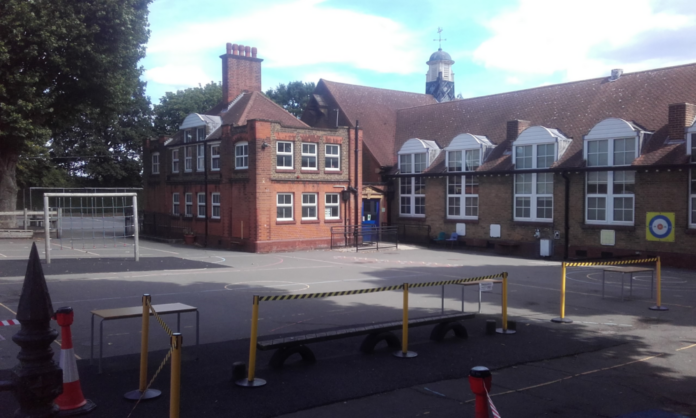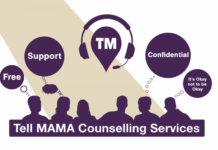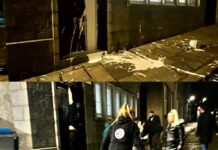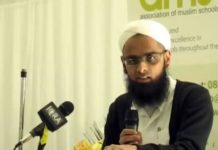Barclay Primary School, Leyton, East London, is embroiled in a dispute with parents after the it published a letter in November warning that students or parents who express “offensive” comments on Palestine could be reported to the UK government counter-extremism initiative, Prevent.
The row comes after some students apparently came into the school wearing clothing items or accessories, such as stickers, which showed Palestinian flags as part of “Children In Need Day,” celebrated on November 17.
After some students were allegedly “sanctioned,” a letter was submitted to parents warning them and their children against making “overt demonstration of political beliefs.”
The letter, dated November 17th, claimed that Barclay wished to remain “apolitical,” and that conflict or tensions worldwide should not be “brought into school or acted out in parent’s WhatsApp groups” because the comments may be misconstrued as “offensive, divisive and in some cases extremism.”
The letter additionally warned that any “inappropriate comments” made at school could lead to a referral to Prevent or the Hate Crime Team in Waltham Forest.
It said: “As a parent I ask that you are role models, and adhere to the Parental Code of Conduct at all times. Inappropriate comments made at school or demonstrated at school including: extremist or divisive comments can and will lead to formal meetings with the school, referrals to the PREVENT Team or the Hate Crime Team in Waltham Forest. If you as a parent are upset with external social media communication, then as an external member of the school you are well within your right to escalate this to the Hate Crime Team.”
The Prevent strategy, launched in 2007, is a government-backed initiative which seeks to stop people becoming terrorists or supporting terrorism both in the UK and overseas.
Subscribe to our newsletter and stay updated on the latest news and updates from around the Muslim world!
The counter-extremism strategy is considered highly controversial and has been condemned by Amnesty International for targeting Muslims and encouraging a culture of “thought policing.”
A similar letter had been published by Barclay Primary dated October 16, which warned parents against “comments made on social media or our parents WhatsApp groups that could be deemed offensive.”
Similar warnings about offensive comments leading to potential Prevent referrals were issued in this letter too.
In response to the school’s comments, a formal letter of complaint was sent back by parents on November 20. The letter expressed “distinct concerns” in relation to the way in which “Palestine solidarity and political engagement is being handled” by Barclay Primary.
The complaint letter lists several alleged incidents which students apparently have faced since October 7, including: “Some students have been excluded from class for wearing badges that read ‘Free Palestine.’ While others have been sanctioned for even discussing international affairs with classmates.”
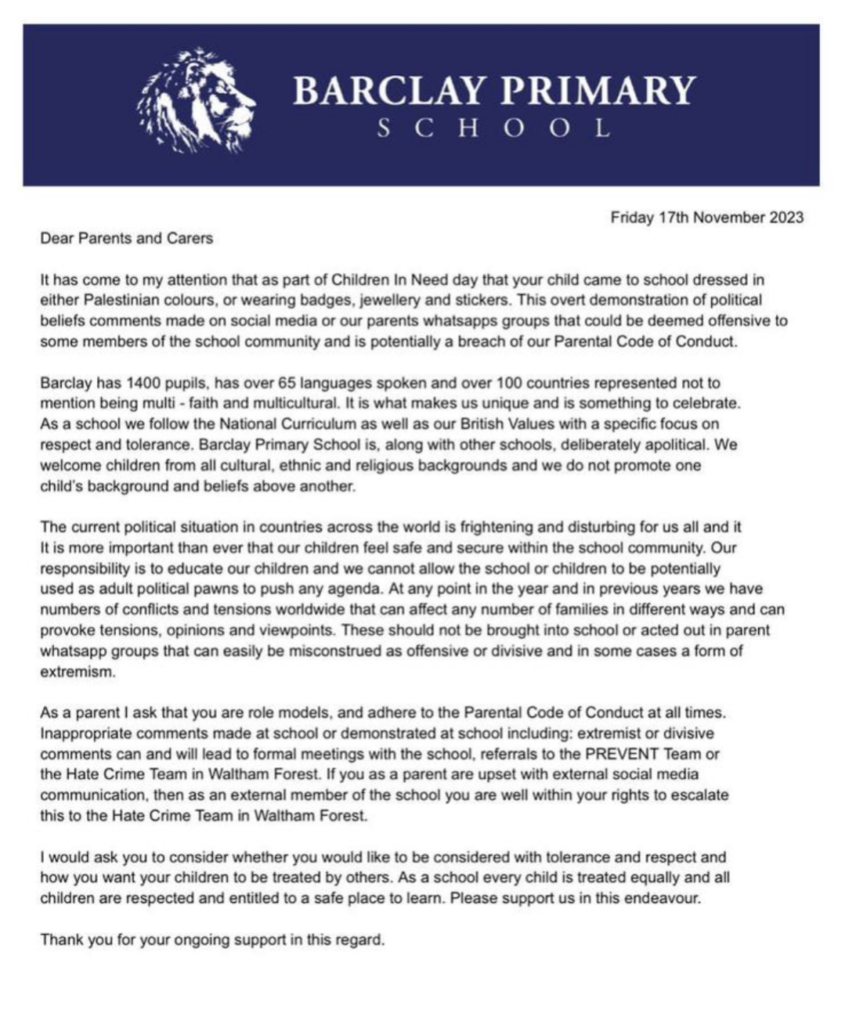 The letter additionally objected to the school’s conduct on several grounds including: “freedom of speech”, “disparity in approach” and the Prevent referral warning.
The letter additionally objected to the school’s conduct on several grounds including: “freedom of speech”, “disparity in approach” and the Prevent referral warning.
It said: “Quite aside from the fact that Prevent referrals criminalise people from young age in a way that follows them into adulthood, the scheme has the much more insidious effect of intimidating students – particularly Muslims and adults – into censoring themselves. This is especially sinister at a time when Muslim students are witnessing their Holy Land ravaged and fellow Muslims massacred.”
The letter additionally urged Barclay Primary to clarify its comments and issue reassurances to worried parents.
“We hearby seek your reassurances that Barclay Primary School will not: 1. Penalise any student (or parent!) for expressing their support for Palestine, either in the course of discussion or by wearing badges/pins/stickers/clothes of any colour; 2. Escalate any matter to PREVENT or the Hate Crime team without first following internal safeguarding policies.”
Moreover, the complaint letter explained the disparity in approach between the school’s recent stance on Palestine solidarity compared to letters published in 2022 regarding the Ukraine war.
“As parents and carers, we found it particularly difficult to read your letter of 17 November comparably with your letter of 04 March 2022 in relation to the Russian invasion of Ukraine.”
A quote from the 2022 Barclay Primary letter regarding Ukraine was added: “I don’t know how you’re feeling at the moment but everything in life seems slightly trivial when you compare what’s happening in Ukraine… The Children’s School Council will be meeting next week to plan our own fundraising event to raise money for global charity organisations directly involved in the Ukrainian conflict.”
The letter ended requesting a school apology and an updated letter to reflect a reviewed position.
5Pillars contacted the school for a reaction to the accusations. The Lion Academy Trust which runs several schools, including Barclay Primary, published this statement:
“The Lion Academy Trust is aware of a social media post and subsequent responses published over the weekend which makes false and unfounded allegations about Barclay Primary School and members of the Trust’s board. The Trust are working to address this via the appropriate authorities – and will be taking all necessary steps to resolve this correctly. The Trust and school will not be making any further comments at this time and remain focussed on delivering the outstanding education which all pupils and their families directly benefit from.”
Speaking to 5Pillars, Dr Layla Aitlhadj, Director of Prevent Watch, explained how UK schools are advised by the Government to use controversial Prevent referrals and the impact they can have.
“Threatening a child or parent with a Prevent referral for expressing solidarity with Palestine reflects, at best, ignorance and, at worst, a manipulative strategy designed to suppress free speech. Sadly this attitude has been emboldened by poor advice distributed to schools by Government.”
“The detrimental effects of Prevent, whether it has manifested through an actualised referral, or the mere threat of one, are multifaceted. We have documented these harms and their impact on children in our People’s Review of Prevent report.”
Dr Aitlhadj added: “Among the 600+ cases of Prevent catalogued by Prevent Watch, more than half involve children who are referred by their school. It has resulted in a profound sense of mistrust between student-teacher and parent-teacher relationship. The repercussions of these misinformed referrals range from the trauma associated with being interrogated by counter terrorism officers to long term impacts on their education owing to the extensive sharing of Prevent data.”






